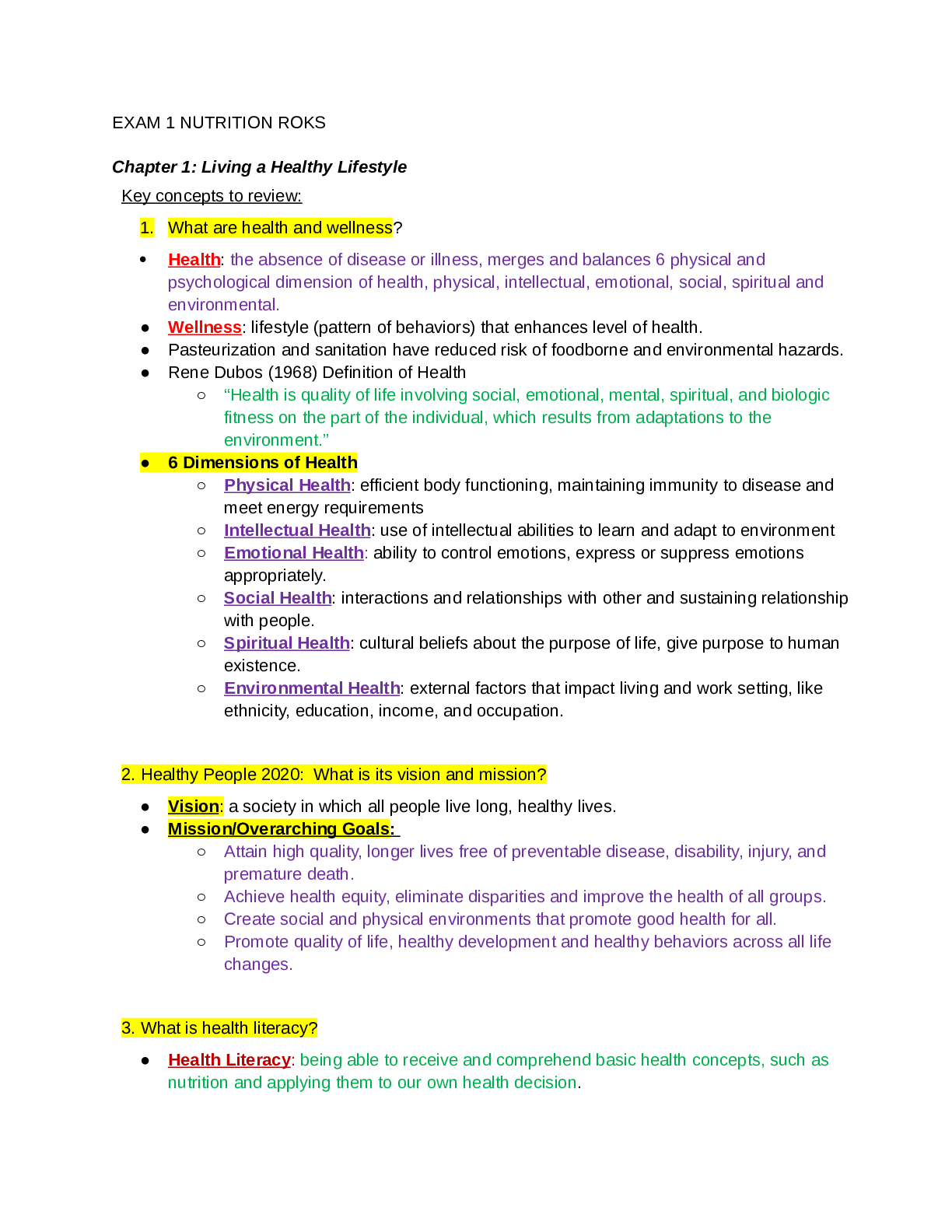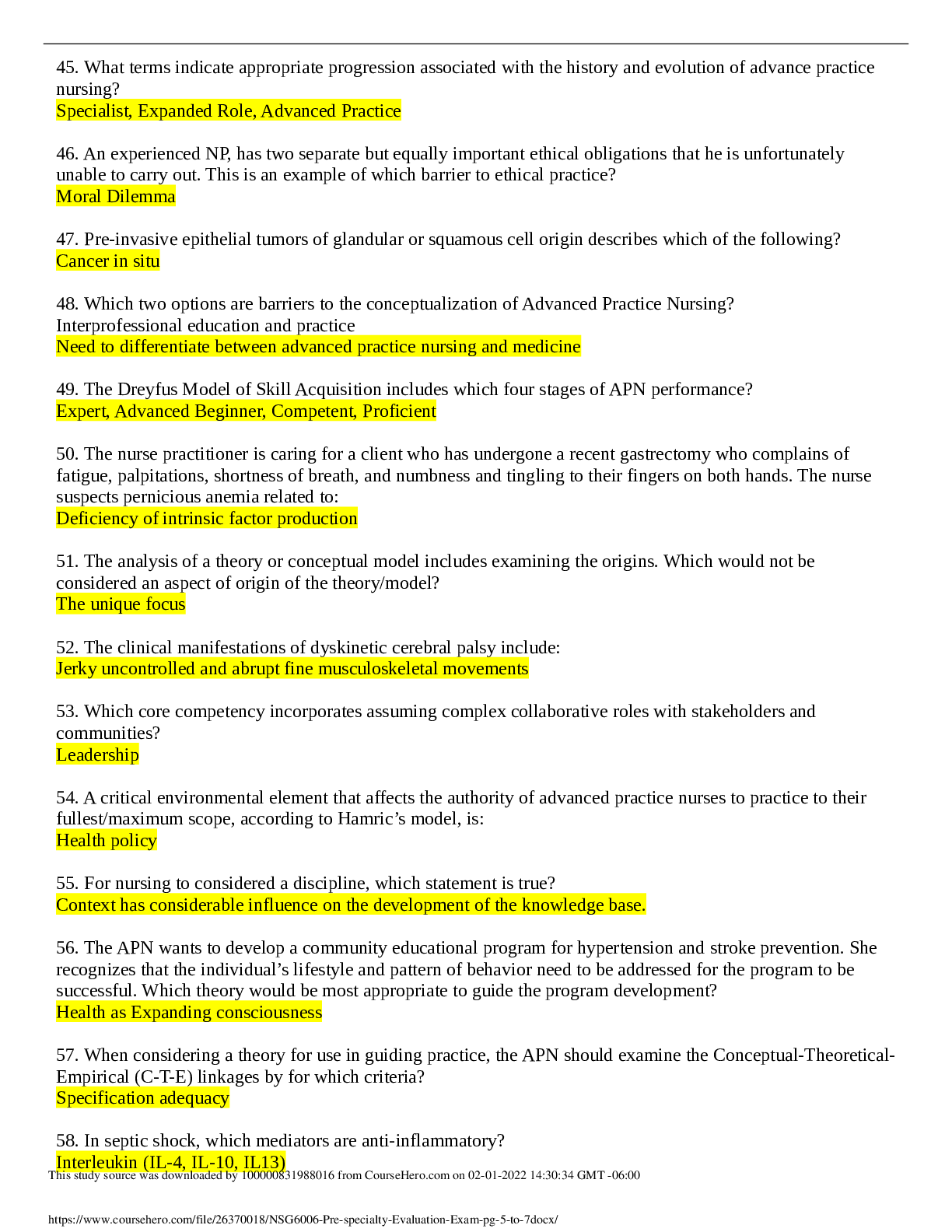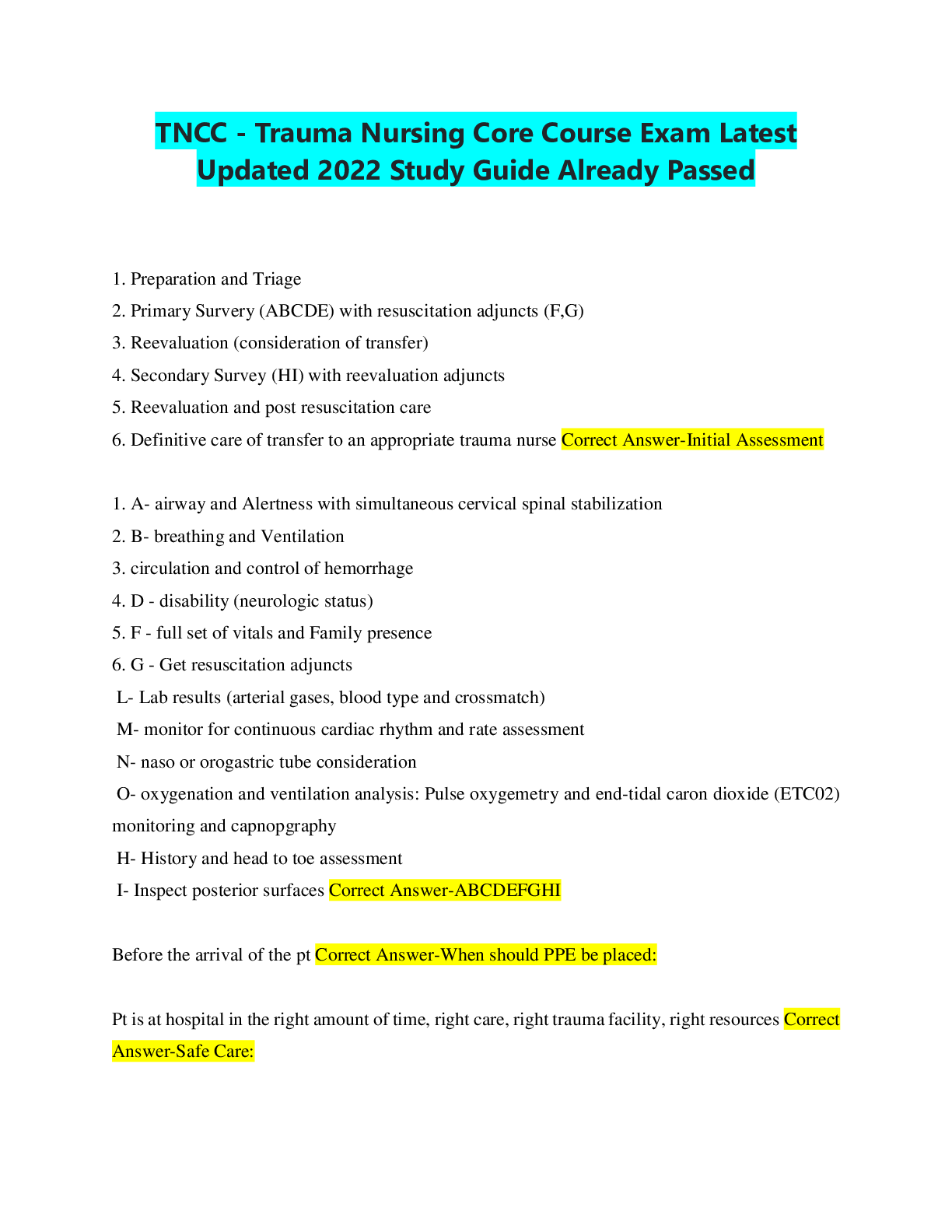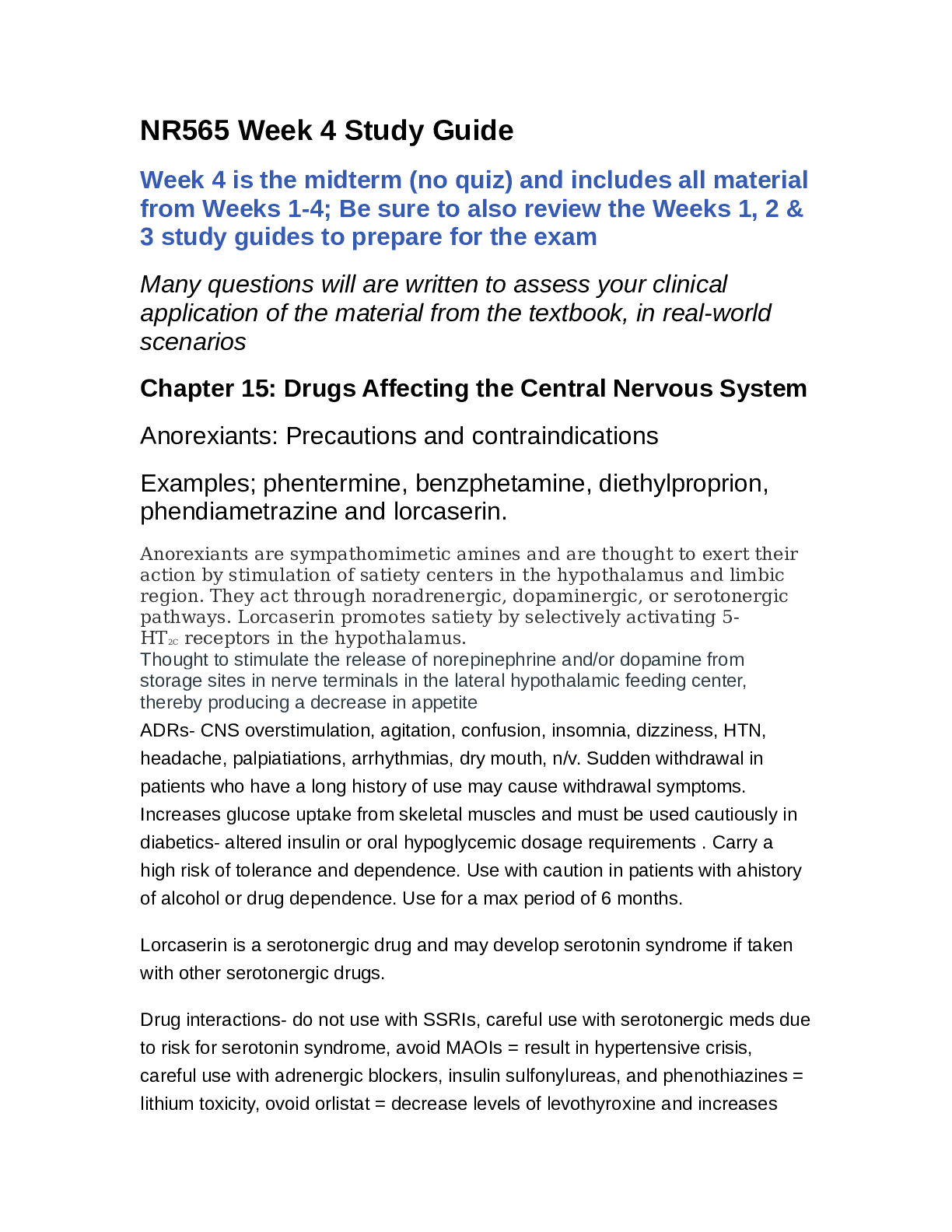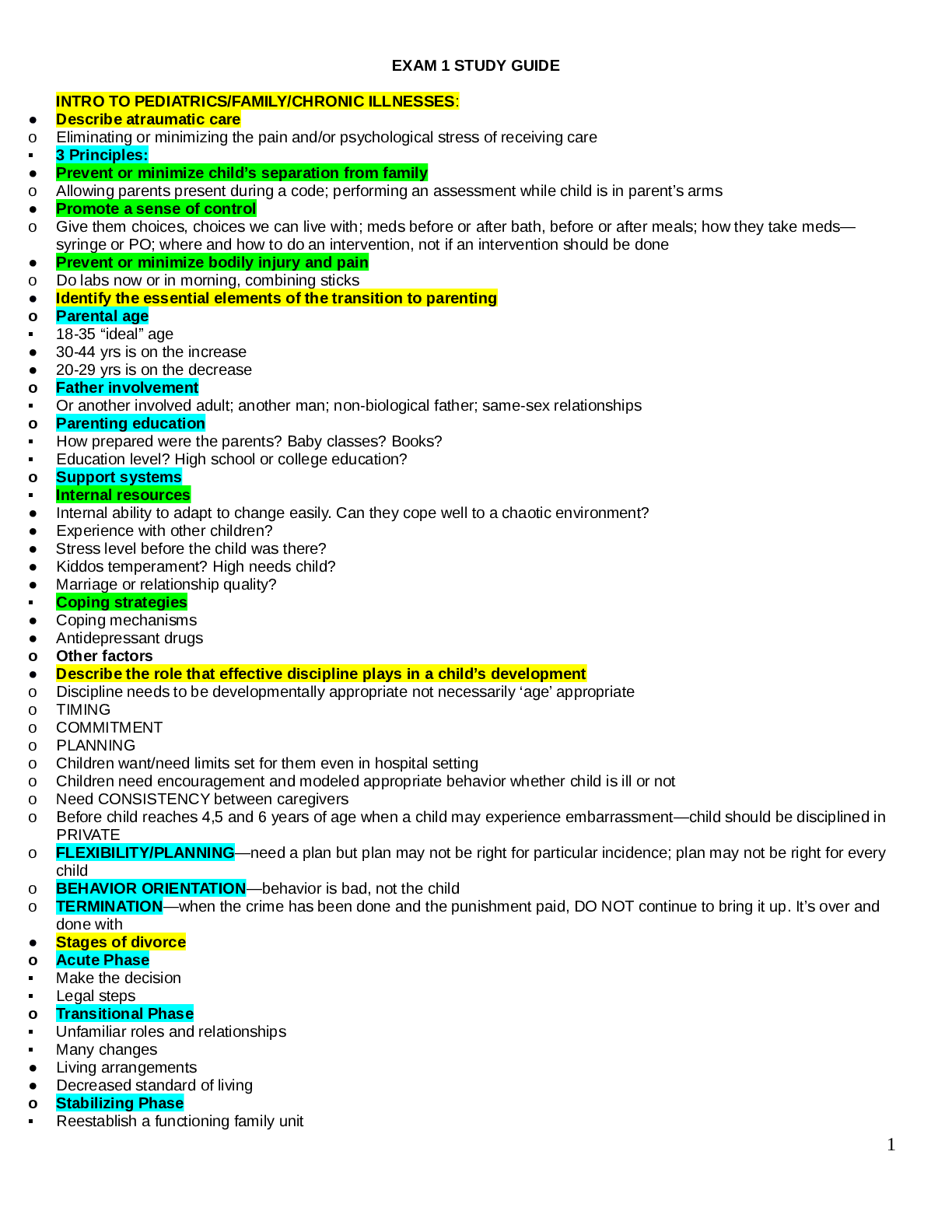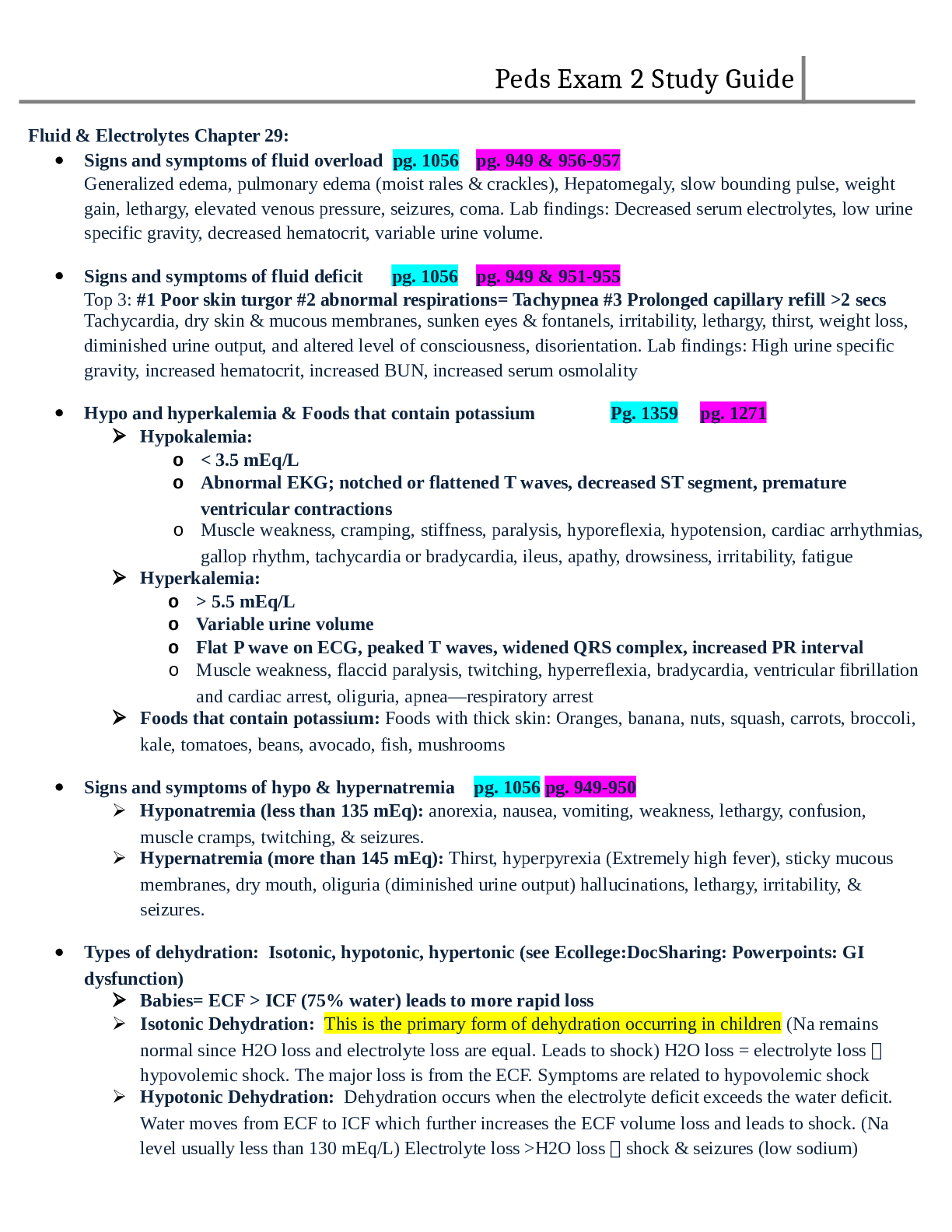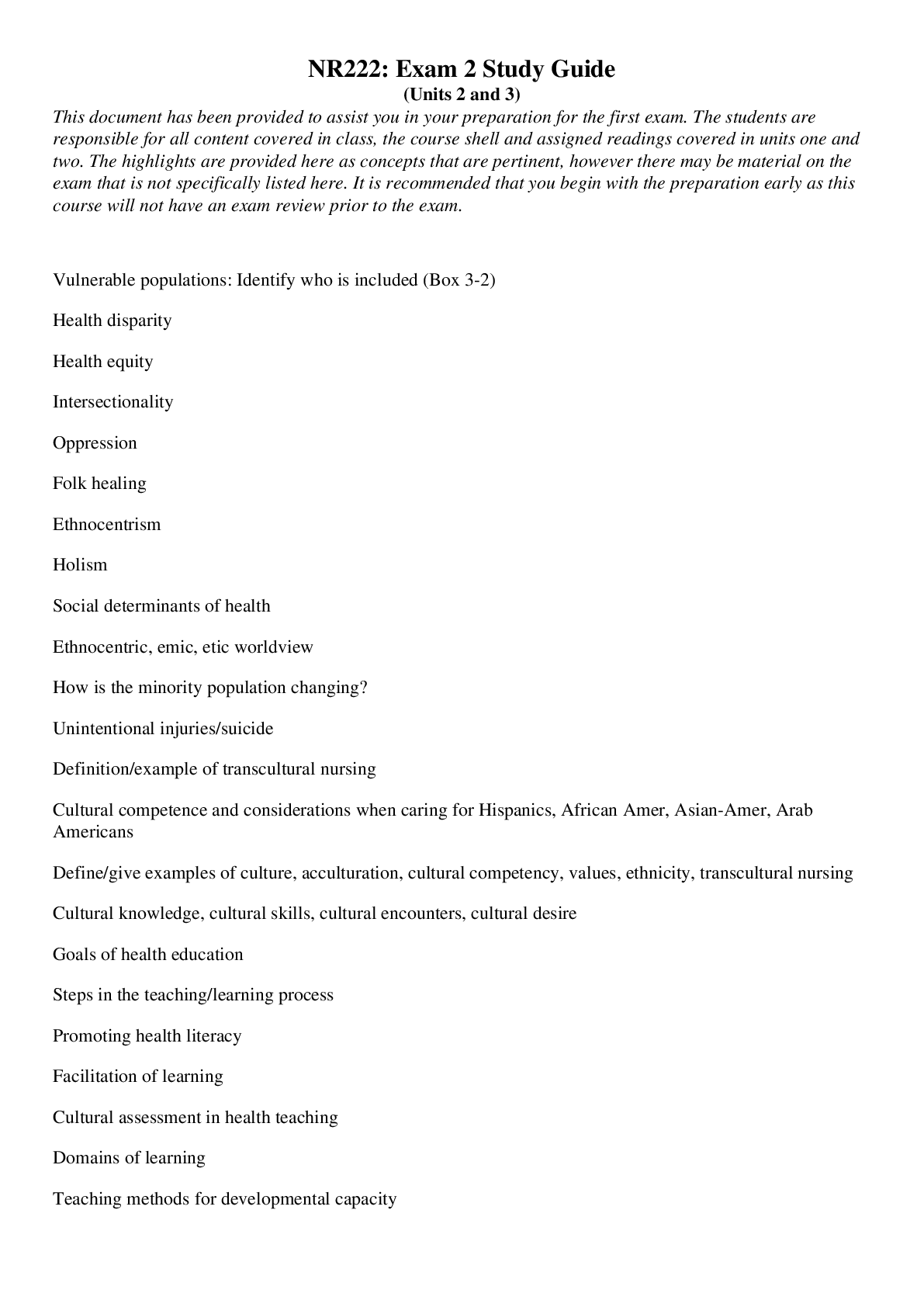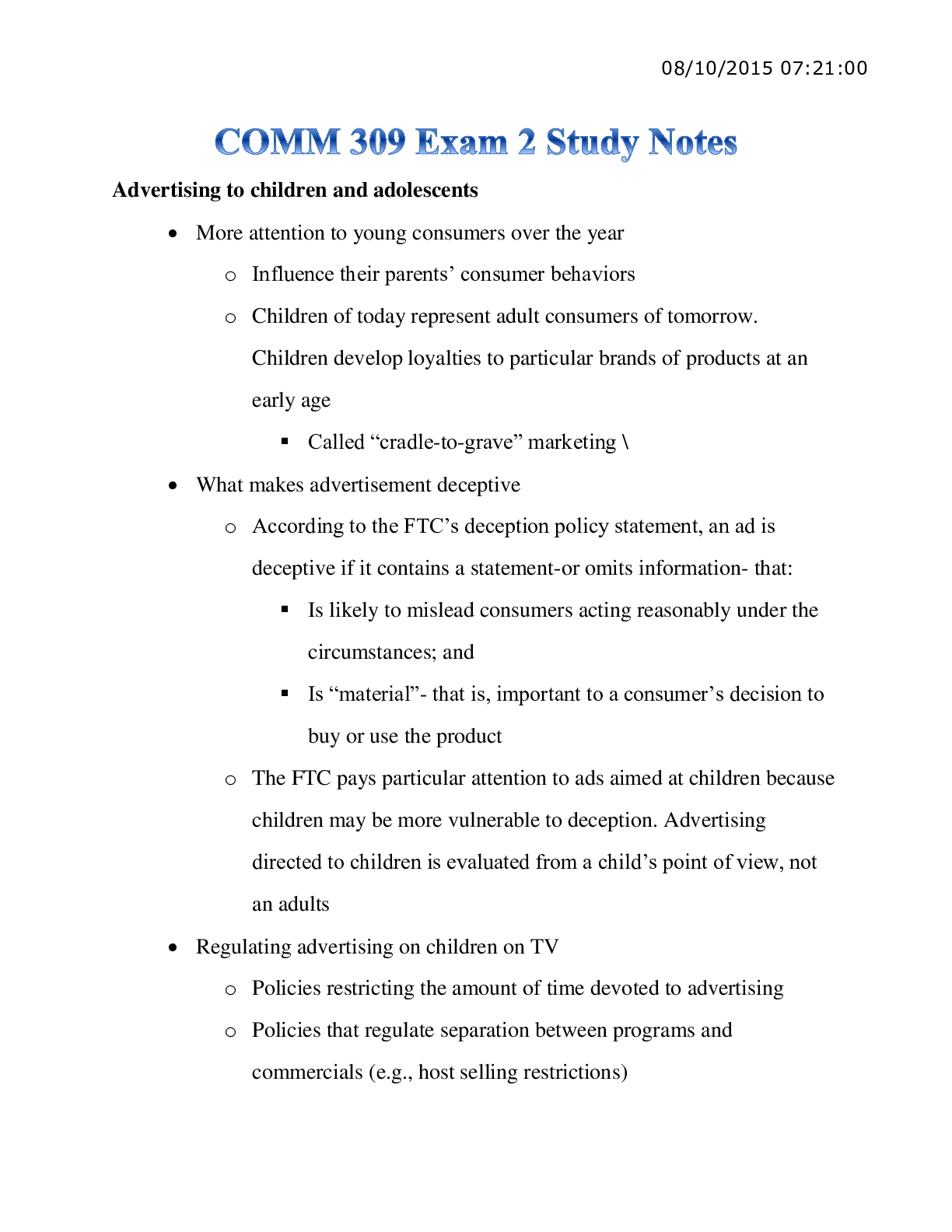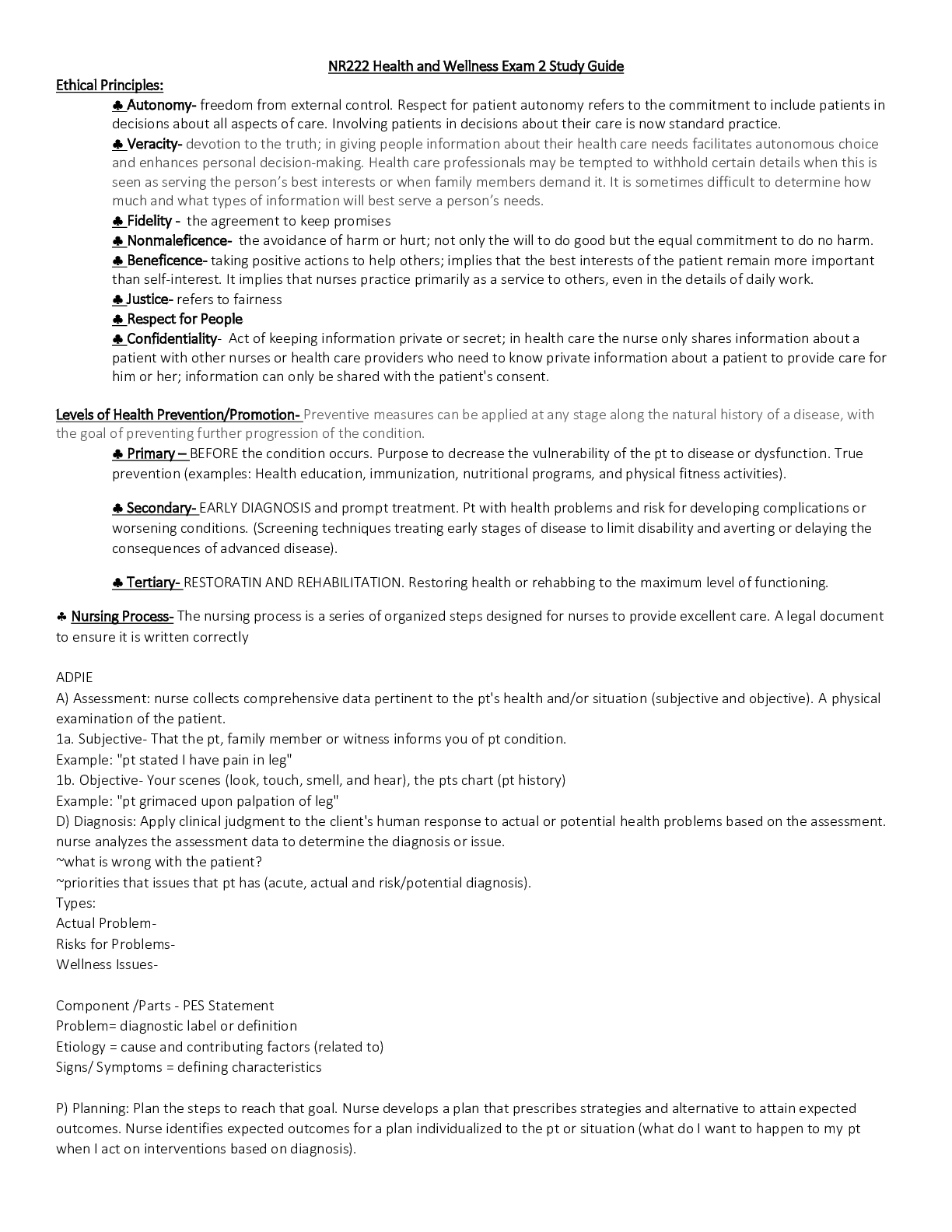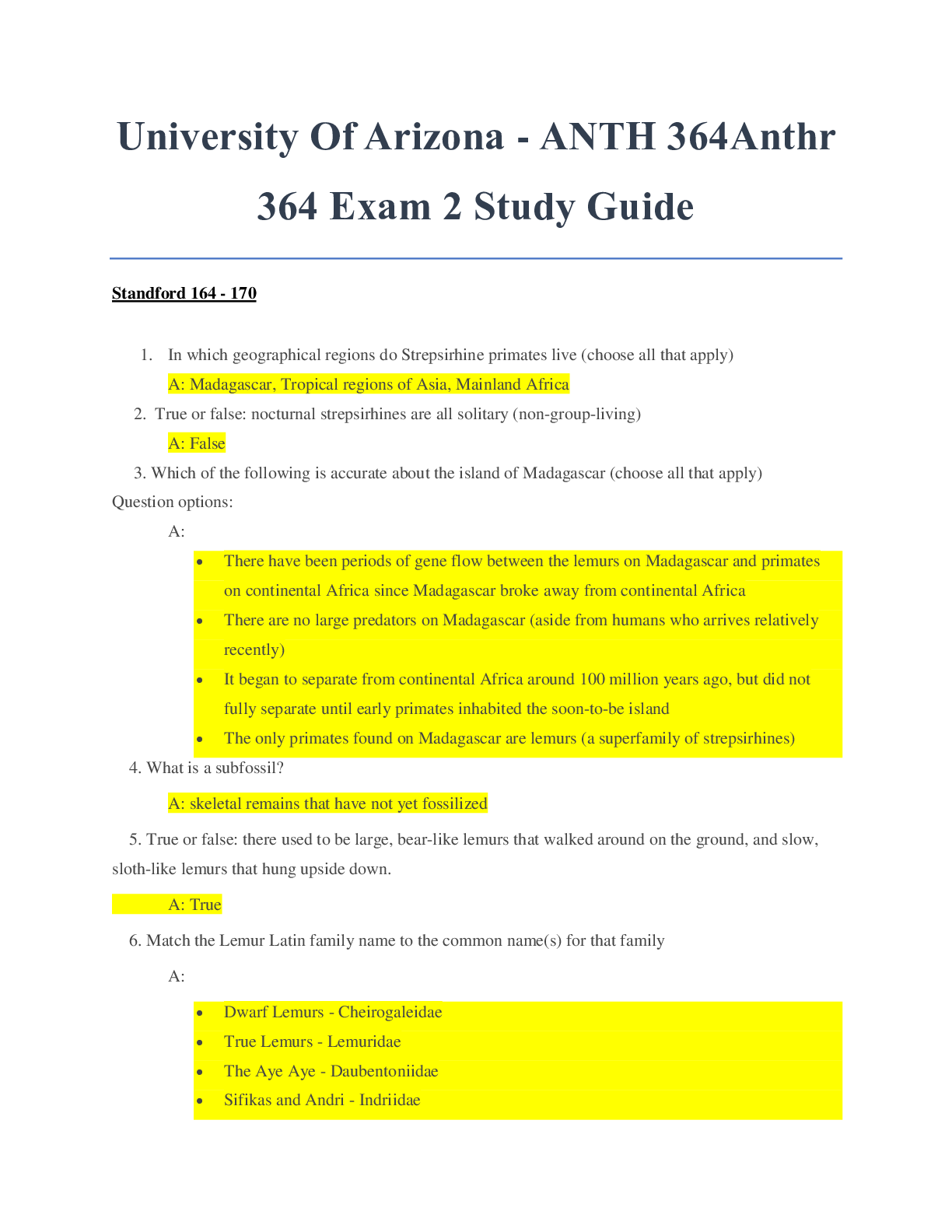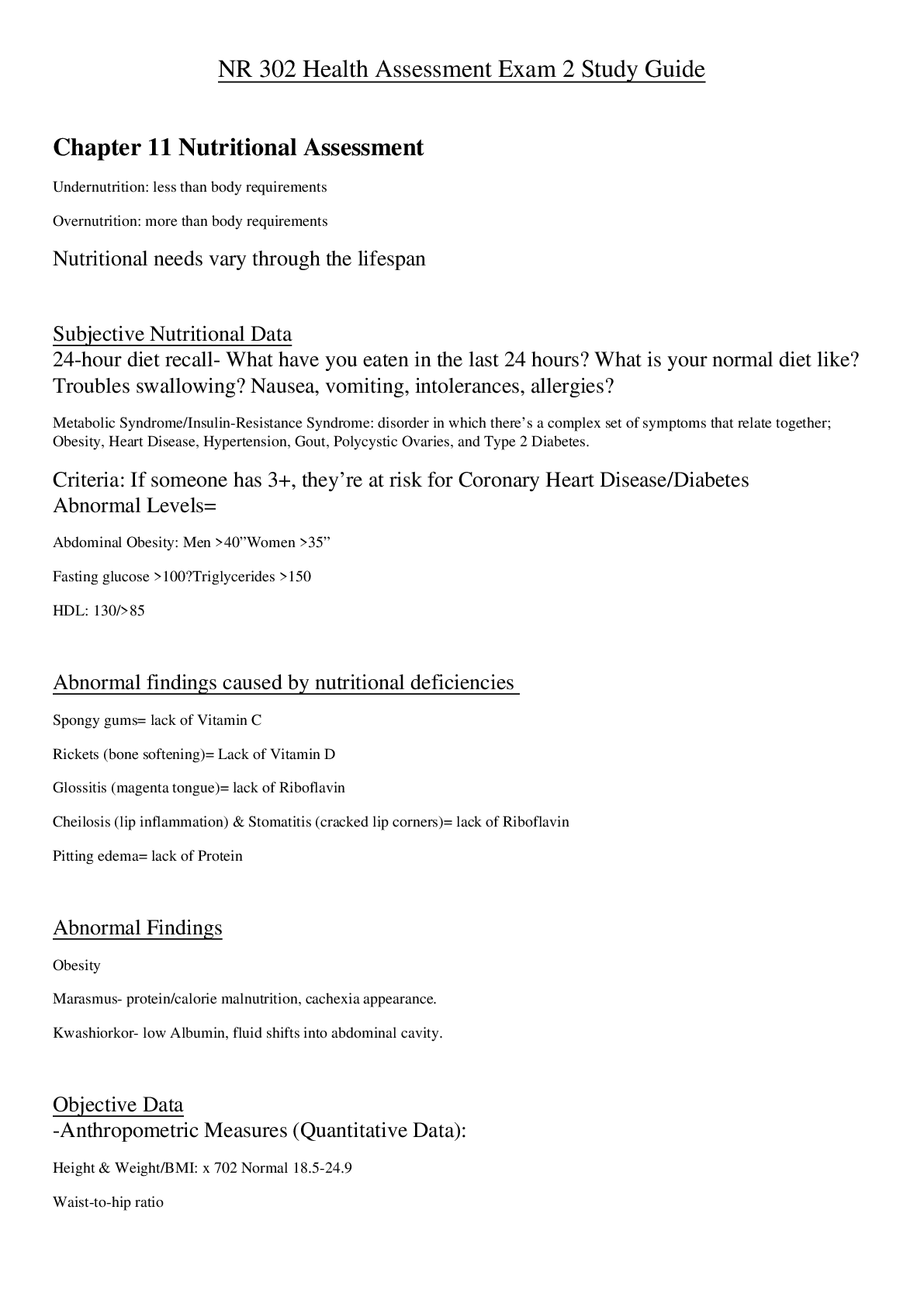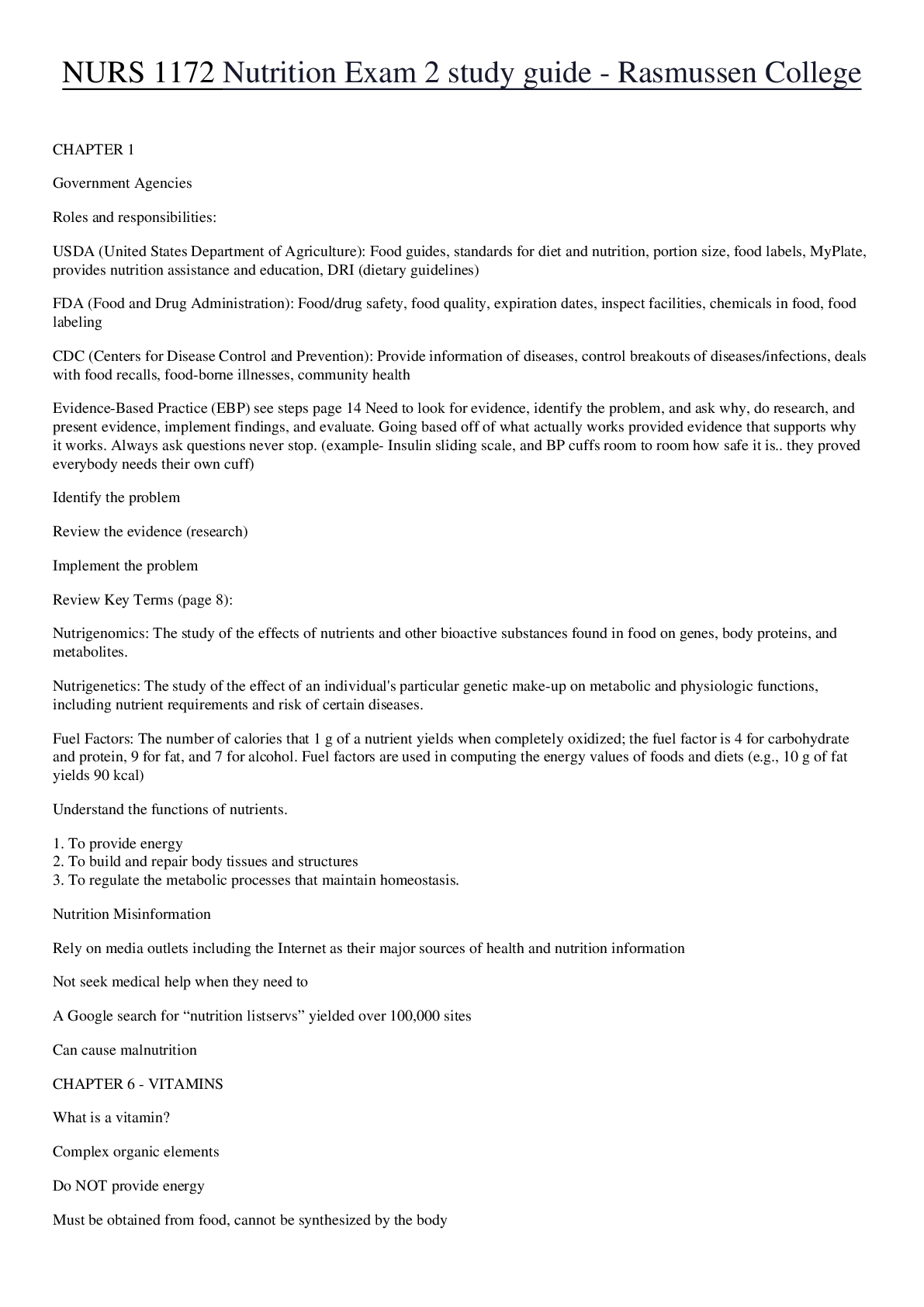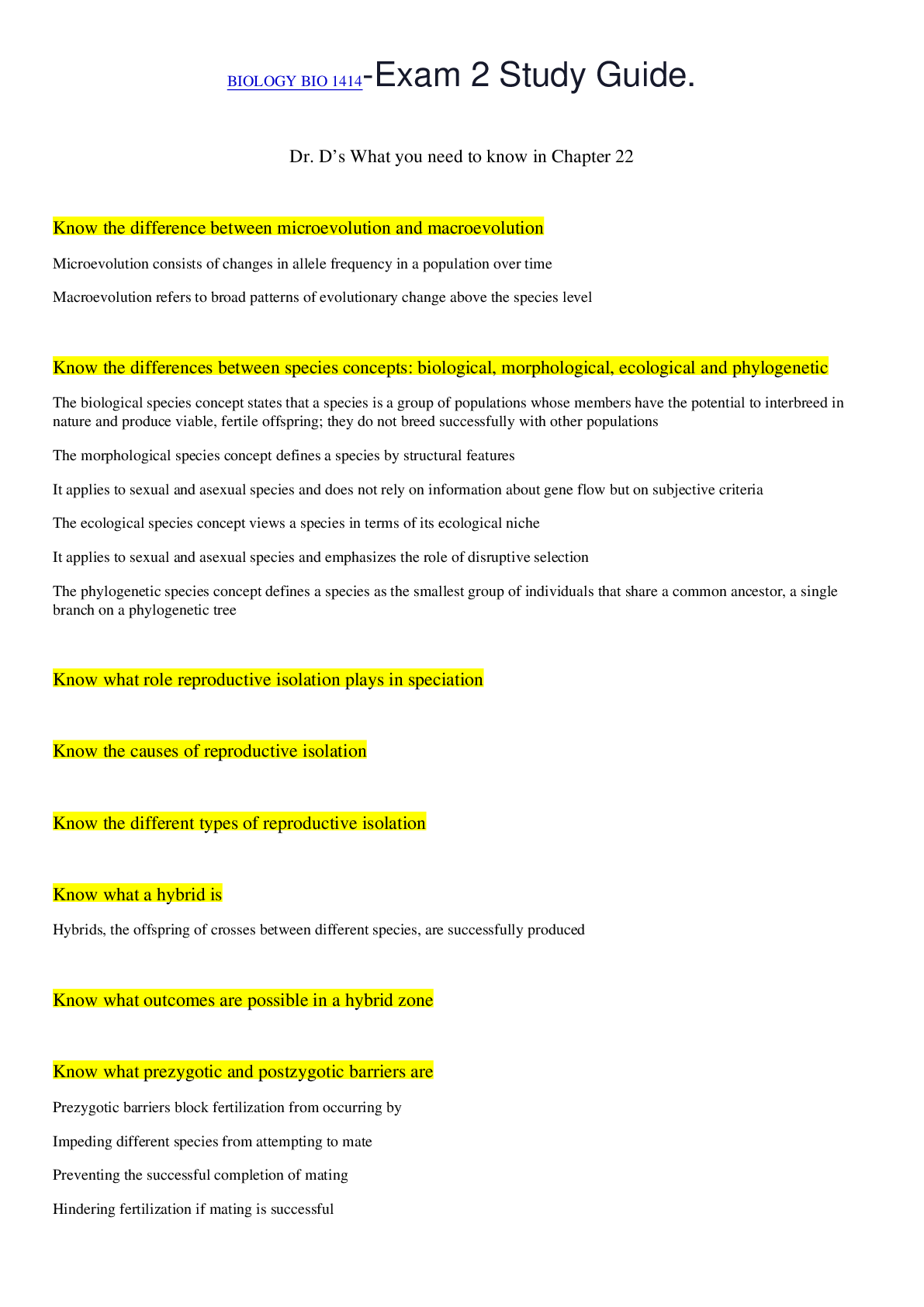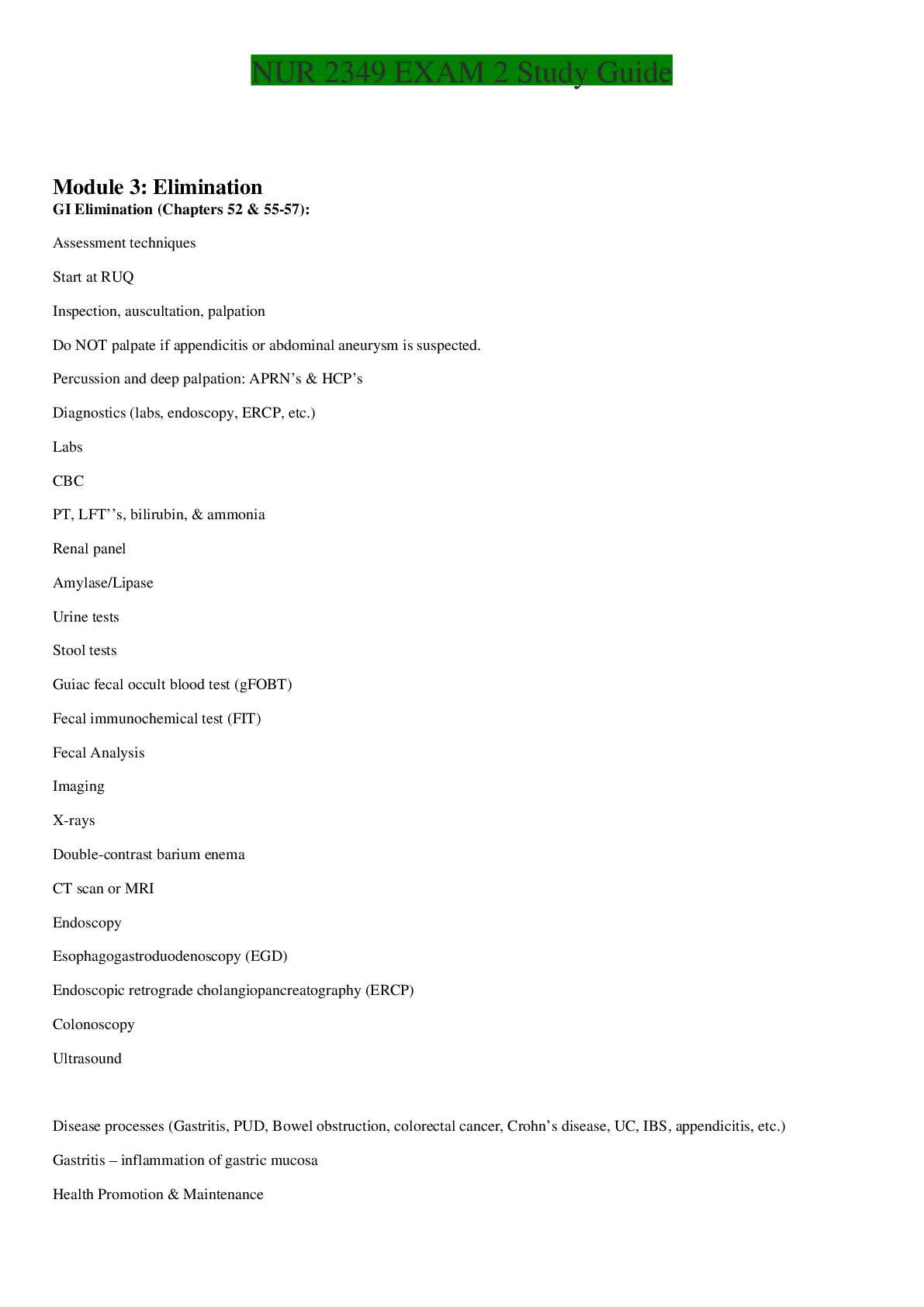*NURSING > STUDY GUIDE > NR 228 Exam 2 Study Guide Chapter 7 to 12:Chamberlain College Of Nursing (All)
NR 228 Exam 2 Study Guide Chapter 7 to 12:Chamberlain College Of Nursing
Document Content and Description Below
Grodner and Escott-Stump: Nutritional Foundations and Clinical Application: A Nursing Approach, 6th Edition Chapter 07: Vitamins Review Questions 1. Describe the difference between primary and sec... ondary vitamin deficiency. Primary: Inadequate consumption to meet physiological needs Secondary: Absorption is impaired or excess excretion occurs, limiting bioavailability, and adequate consumption. 2. Discuss the subgroups of Americans who are at risk for vitamin deficiencies. Pregnant women have increased needs. Older adults experience decreased absorption ability and limited availability of food resources. Poverty, chronic grug/alcohol use, various disease states 3. List two distinguishing characteristics of water-soluble and fat-soluble vitamins. Water Soluble: o Dissolve in water (B complex, Choline, and Vitamin C) o Absorbed easily, minimal storage, deficiencies develop quicker, usually low risk of toxicity. Fat Soluble: o Dissolve in fatty tissues or sustances o Vitamins A, D, E, & K o Absorbed with fat, excess stored in body, deficiencies longer to develop, greater risk of toxicity. 4. List the vitamins needed for blood health, bone health, energy metabolism, and fluid and electrolyte balance. Blood Health: o Folate: synthesis of heme, DNA, Amino acid o Pyridoxine(B6): Hemoglobin synthesis o Vitamin K: cofactor in blood clotting Bone Health o Vitamin D: Bone mineralization o Vitamin K: Bone formation o Vitamin A: Bone growth Energy Metabolism o B1, B2, B3, B6: Coenzyme in energy metabolism o Folate: Conenzyme metabolism, synthesis of AA o Cobalamin(B12): Metabolism of fatty acids, and amino acids o Panthothenic acid: coenzyme A o Biotin: Carb, protein, fat metabolism Fluid: o Electrolytes 7. Name the deficiency diseases or symptoms associated with inadequate intake of the fatsoluble vitamins A, D, E, and K. This study source was downloaded by 100000831988016 from CourseHero.com on 05-09-2022 16:20:09 GMT -05:00 https://www.coursehero.com/file/24147013/Chapter-7-vitaminsdocx/ Vitamin A: xerophthalmia night blindness to kertomalacia, immune system impaired, respiratory infections, diarrhea, GI disturbances, growth inhibited Vitamin D: bone malformation, rickets, osteomalacia, increased risk of CAD, rheumatoid arthritis, cancer, multiple sclerosis, type 1 diabetes Vitamin E: primary are rare, secondary in premature infants, neurologic disorders and anemia Vitamin K: blood coagulation inhibited, hemorrhagic disease, malabsorption disorders, possible osteoporosis [Show More]
Last updated: 2 years ago
Preview 1 out of 2 pages

Buy this document to get the full access instantly
Instant Download Access after purchase
Buy NowInstant download
We Accept:

Reviews( 0 )
$7.00
Can't find what you want? Try our AI powered Search
Document information
Connected school, study & course
About the document
Uploaded On
May 10, 2022
Number of pages
2
Written in
Additional information
This document has been written for:
Uploaded
May 10, 2022
Downloads
0
Views
134
